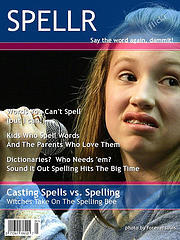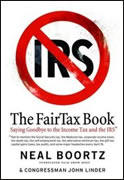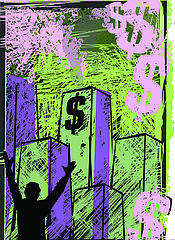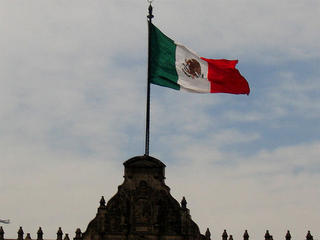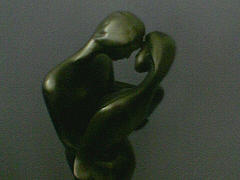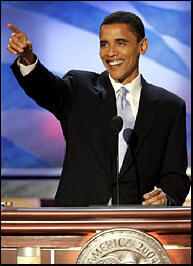
Now even as we speak, there are those who are preparing to divide us -- the spin masters, the negative ad peddlers who embrace the politics of "anything goes." Well, I say to them tonight, there is not a liberal America and a conservative America -- there is the United States of America. There is not a Black America and a White America and Latino America and Asian America -- there’s the United States of America
-Barack Obama
Barack Obama was the lonely no-named Democratic candidate for the Illinois Senate seat before he took the stage on July 14, 2004 as the key note speaker at the Democratic National Convention. Not many could attest to his oratorical skills or his hopeful message for a brighter America. He brought the entire convention to their feet, instantaneously becoming a political celebrity. Barack Obama rode his celebrity all the way to a 39 point landslide victory over opponent Alan Keys for the Illinois senate seat.
Even Fox News has given him much deserved praise. A Fox News article wrote, “The limelight continues to seek out Obama, who became a political star after a rousing keynote address at the Democratic National Convention.” The most interesting aspect of that night, though, must be the fact that Fox, ABC, and NBC didn’t cover Barack’s speech until after it was delivered. Barack Obama’s key note address was only on cable, leaving out millions of Americans who were left choosing between “Last Comic Standing” on NBC, “Extreme Makeover” on ABC, or “Trading Spouses” on Fox.
How can three major networks choose reality television over what could easily be remembered as one of the most prolific and powerful orations of our time? Is it because media sources are biased and didn’t want to cover a great democratic speech? Or was it because of ratings; more people would watch “Trading Spouses” than would the Democratic National Convention? Does the media, in fact, pick sides in political coverage? Yes, both for political and monetary reasons, and they do it by unequally distributing coverage and inconsistently interpreting political events.
To look at these questions in a practical matter, one can compare how political figures in similar situations are covered differently depending on their political affiliations. A great example of how media can unequally distribute coverage and accountability is found while comparing President Clinton’s impeachment with Bill O’Reilly’s law suit.
Andrea Mackris, a former producer for Fox News, sued Bill O’Reilly, the host of a Fox News show “The O’Reilly Factor,” for sexual harassment in 2004. It was alleged that Mackris taped O’Reilly because their were many detailed statements from O’Reilly such as when O’Reilly spoke of wanting to take Mackris on a Caribbean vacation, “Well, if I took you down there then I’d want to take a shower with you right away, that would be the first thing I’d do.
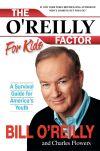
O’Reilly is labeled a conservative who often spouts morality on his show, so he received expected press coverage, much of it being negative. He called himself an “object of media scorn” and told his viewers, “Some of the media hammered me relentlessly because, as you know, I am a huge target, as is Fox News. . . “ For all that media hammering, O’Reilly seemed unaffected.
O’Reilly and Mackris settled out of court for an undisclosed amount and business went on as usual for Bill O’Reilly and Fox News. In fact, O’Reilly’s show was already the most watched news program on cable television, but after the sexual harassment charges, his ratings jumped by a third. How could this happen?
Well for one, Fox News stopped covering the case after O’Reilly settled and the next day the network broadcast O’Reilly saying, “This brutal ordeal is now officially over, and I will never speak of it again.”
He didn’t. And neither did anyone else.
The last written article on a major news web site was October 29th in the Washington Post, only one day after the settlement. This scandal was a flash in the pan story, wiped under the table after settlement, and kept hush-hush among all the media networks. But what would happen if a major political figure was in a similar situation? Would the media be as generous in their coverage, or lack there of?
Bill Clinton was impeached and tried for lying under oath about having sexual relations with Monaca Lewinski in 1999. Granted, he was the President of the United States so everything he did was under the watchful eye of the public and especially the media, but the level of the media’s coverage was unprecedented. An excerpt from Bill Clinton’s Biography describes it best...
The next seven months found the American public consumed by the Lewinsky affair, following every nuance of the investigation by Starr and debating the merits of the case. Nothing like this had so captured the attention of the American public since Watergate and Nixon's resignation from office.
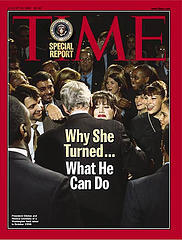
It seems ridiculous to compare the coverage of Bill O’Reilly to that of the Bill Clinton impeachment does it not? Bill Clinton was the President of the United States, the leader of the free world. Bill O’Reilly is a news anchor and a TV host. But do not underestimate the power of Bill O’Reilly and Fox News. Rupert Merdock, the owner of Fox News, has a total audience of 4.7 billion people, 75% of the world’s population. If Fox News and its owner choose to affect the public’s perception of an event and a political ideology by covering or not covering certain stories, they can.
The media is very calculating in how it chooses to cover a story for specific reasons. If a media source covers a political scandal (like that of Bill O’Reilly and Bill Clinton) frequently, then the public will believe that it “must be important because it is on the news all the time.” Therefore, the more a scandal is covered, the more people are likely to be in an uproar about it. So the more the media covers a scandal, the more they want people to be upset about it.
It becomes hard to have faith in the media when it seems to be so unequivocally biased in how much coverage they allocate to “political scandals” depending on who committed the alleged crime. But the media can’t only affect the public’s perception of a story by unequally distributing coverage; they can also interpret an event as character representative or as an idiosyncrasy, which results in completely different political outcomes. This interpretation bias can be shown by comparing Howard Dean’s infamous “yea” speech to the current American President’s “Bushisms.”
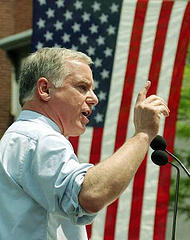
Whether one calls it a passionate speech or a mistake, after losing the Iowa caucus Howard Dean gave a speech that seemingly ruined his run at the Presidency in 2004. Dean was the frontrunner in almost every pole, set to get the Democratic Nomination for President. He raised most of his money through small donations by young adults, and he was speaking to many of those supporting youths on that fateful night after the Iowa caucus. He got significantly heated, his face turned red, his tie was loosened, and his speech got louder: all signs of passionate oratory. But no one in the media thought of this speech as motivation or passion, they ran the clip of a man screaming “yeaaaa” over and over. Throughout the 2004 Presidential race Howard Dean had been stereotyped as the rowdy candidate who doesn’t respect authority (namely President Bush’s) and is ultimately, unpresidential. This impassioned outburst was interpreted as one of a madman. The media continuously implied he “looked crazy” and that the yell was “representative of his character.”
Pat Buchanan, a former Republican presidential candidate, said "Dean's Iowa defeat was a real setback to him, but his post-game commentary was a disaster. That tape will be on every national talk show, I don't think it's survivable. It wasn’t. The next primary was to be held in New Hampshire. Before the infamous speech, Dean’s favorability ratings were at 59% and just 39 % three days after the speech. It is impossible to speculate causation, but it is hard to believe that Howard Dean’s presidential popularity was not negatively affected by how the media portrayed it as the speech of a madman rather then that of an impassioned orator.
Due to how the media interpreted one word, “yea,” Howard Dean’s popularity sunk. But while “yea” was supposedly character defining, the media oppositely portrays President Bush’s complete desecration of the English language as funny and idiosyncratic.
In Washington, D.C., on Nov. 4, 2004 President Bush was quoted saying, "I always jest to people, the Oval Office is the kind of place where people stand outside, they're getting ready to come in and tell me what for, and they walk in and get overwhelmed by the atmosphere. And they say 'man, you're looking pretty.”
No, he didn’t really say that…did he?

Unfortunately, yes. This incoherent rambling more resembles that of a schizophrenic than of the President of the United States. “Bushisms,” as these grammatical failures are so eloquently named, are quoted almost daily and fill numerous books. But how is it that the President of the United States’ continuous babbling is considered a funny quirk while one impassioned yell is deemed unpresidential? Isn’t intelligence something to be admired? Shouldn’t the President of the United States be able to articulate his thoughts without the aid of a speech writer? Many media analysts don’t think so.
Referring to President Bush and speaking to his viewers, Bill O’Reilly once said, “if you think the guy is a dummy, he’s not.” Obviously Mr. O’Reilly doesn’t feel that English and Reading should be sections on the ACT, a test to measure likely success at college and overall intelligence.
So why aren’t “Bushisms” seen as a sign of a lack of intelligence by the media? One answer is because the media chooses how to interpret certain character flaws, deciding whether they should be interpreted as character defining or insignificant.
As one can see, the media doesn’t have to come out and say it is for one party or another to affect public opinion; the media can support one ideology over another by unequally distributing coverage and by inconsistently interpreting political events. But does that mean that the media is solely to blame for how the public perceives a certain politician? No. Bill Clinton’s scandal was plastered all over the TV, but his ratings still went up because America gave him the benefit of the doubt. Howard Dean’s passionate speech was shown over and over by the media, but it wasn’t the media who voted against Dean in the primaries, it was the people. And President Bush’s speaking abilities were not considered unintelligent on November 2, when he was elected to serve as the President for a second term. Ultimately, regardless of how the media covers a politician, negatively or positively, the people have the ultimate decision whether to take what the media is giving them (biased or not) and make their own judgments.
Depending on the political prowess of each figure, depending on the times, and depending on which news source one looks at- it is easy to see that political figures’ fortunes are affected by the media. But it is important to note that these affects aren’t necessarily manifestations of the press, or because of the press. The press is a business, just like any other, that wants to make profits. Would Fox News keep Bill O’Reilly on the air if America cried bias and stopped watching in protest? Of course they wouldn’t. The major media networks want to give America the juiciest story possible because that is what viewers want. So does that put the blame on viewers? Yes, partly, but it is also worth noting that the press has a lot of money invested in the right, so the media, then, regardless of ratings, still has a monetary stake in Republican success.
NBC is owned by General Electric Co., the 13th largest donor to the Bush Campaign in 2004. ABC is owned by Walt Disney Inc., the 23rd largest donor to the Bush Campaign in 2004. Fox is owned by The News Corporation Lmt., the 12th largest donor to the Bush Campaign in 2004. And not to be outdone, the “Clinton News Network,” as it is sometimes referred to as, went against its “normal” bias this year. CNN is owned by AOL- Time Warner Inc., the 8th largest donor to the Bush Campaign in 2004. It does not take a pessimist to question whether every major news network should so furiously support one candidate; does monetary support imply subjective coverage? Not necessarily, but it sure raises a few eye brows and would certainly give another reason for bias.
Is there any hope in the American public or in the media moguls to change their bias coverage? Sadly, not really, so that leaves America with one hope, the politicians themselves. Politicians consistently run on the platform of positive change and now it is time for them to actually come through in the clutch.

Barack Obama gave an impassioned speech that was at worst, memorable. Although the speech may not have been covered live, it was still ultimately covered positively by all media sources. Therefore, if politicians would do like Barack Obama, and portray themselves as beacons of hope on all accords and in all settings, then Americans wouldn’t be in such an uproar about media bias and more importantly, the media wouldn’t have any scandals to clench their filthy little teeth into. Now, that is not to say that the politicians are at fault, but if anyone can change a politicians’ success, it is the politicians themselves.
